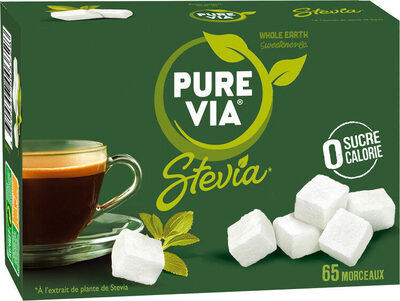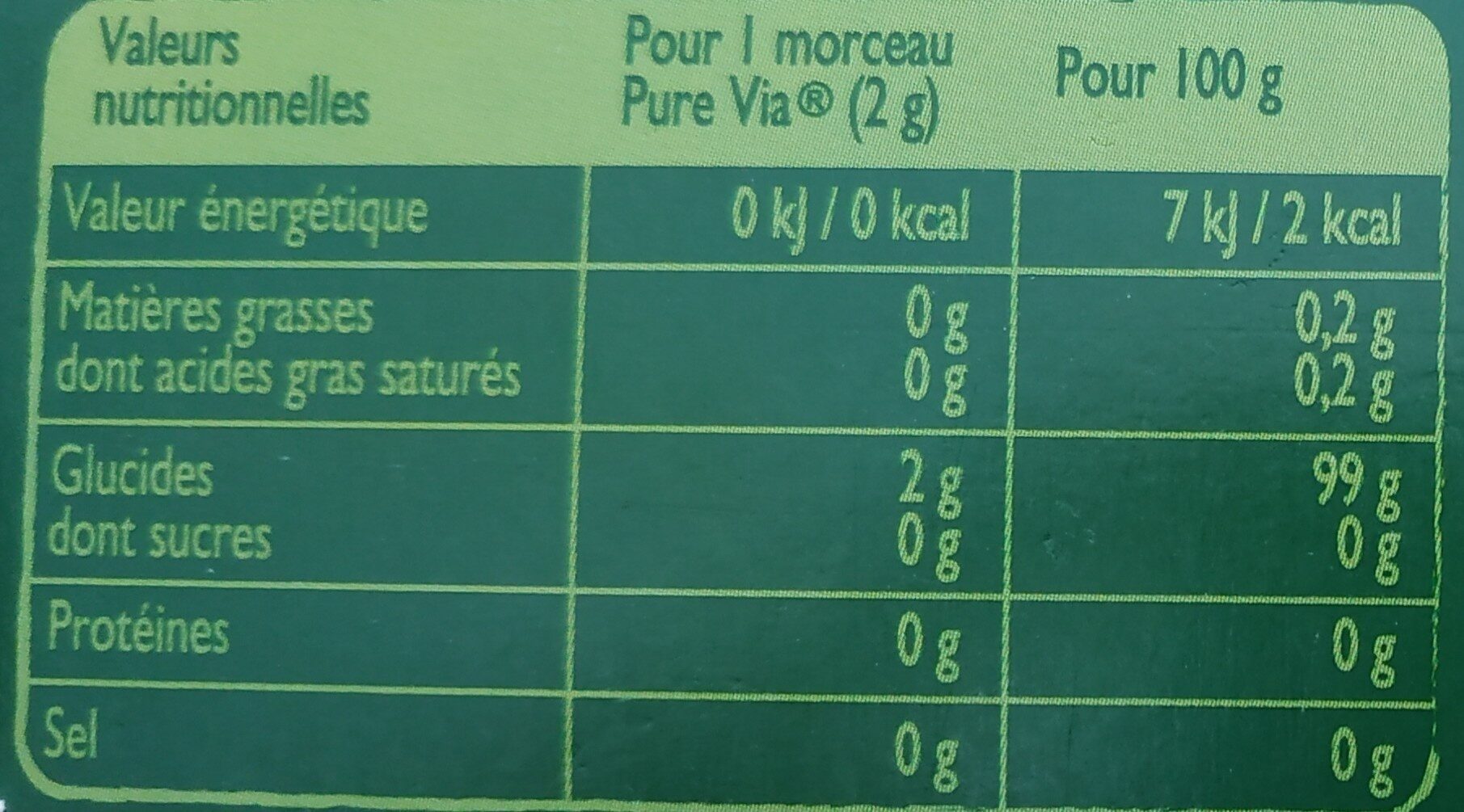Pure via 65 morceaux - 65 morceaux, 130 g
This product page is not complete. You can help to complete it by editing it and adding more data from the photos we have, or by taking more photos using the app for Android or iPhone/iPad. Thank you!
×
Barcode: 3329757003728 (EAN / EAN-13)
Quantity: 65 morceaux, 130 g
Packaging: Cardboard, fr:Etui en carton
Brands: Pure Via
Categories: Plant-based foods and beverages, Plant-based foods, Sweeteners, Food additives, Stevia and their products, Sugar substitutes, Sugars, Tabletop sweeteners
Labels, certifications, awards: Excessive consumption can have laxative effects
Stores: Magasins U, Leader Price, Casino, carrefour.fr
Countries where sold: France
Matching with your preferences
Report a problem
Data sources
Product added on by kiliweb
Last edit of product page on by roboto-app.
Product page also edited by autorotate-bot, bzfoll, date-limite-app, driveoff, duhowpi, guix77, jmmathiere, magasins-u, off.1f7bf651-beae-41a9-b8ba-1a38bd70e97d, oliviers, openfoodfacts-contributors, packbot, tupulechat, vsrx, yuka.U2ZBSEVQOFI5dnd5dDh3ZDlBL1JwZnh5MnFiMEIxK3JMdXNlSWc9PQ, yuka.Uy9GZlNxWUlsL1E3cGRzVi9CSEorZkJmMzZLU1ZFU2JJc3dCSWc9PQ, yuka.UzdsZUZmb1J0UHNobGZBQzN4L1N4dWxFK1lhclhrUHJLN016SUE9PQ, yuka.VlBFc0M0WUZpZHhWbnNjVjVVblQrZmRKMnErdVFVQ0xOOGhLSVE9PQ, yuka.VnIwSFByVXV1ZElobWZReDB4YkwrL0JsNXFlT1kwcnZNOWhCSVE9PQ, yuka.WVA5ZEg3d3pvTkFvdGRzUjhpTHk5dXBSNDUyWlhGcUpMOFUvSUE9PQ, yuka.Wi9vQ0dxa29tdmc3djhRLzhUUHozZXQwK2JIeWZYaVdFUFFwSVE9PQ, yuka.Wm9RZE01NEtqOWNvd01NbXdqbkoyL0ZuKzY2QVowR1VJZUZJSVE9PQ, yuka.ZTdJNkRmaFFvcVVsbFBJNDhEM1IxWU5JbU1IMEJuS29ML1E3SVE9PQ, yuka.sY2b0xO6T85zoF3NwEKvlhQeX__UpjnrGUbfnW2u7MiqLqL6cOwsz9CmCqs, yuka.sY2b0xO6T85zoF3NwEKvlmlracbTrimaHjL4pneW2NenKLq4fcBP-a3CHao.










